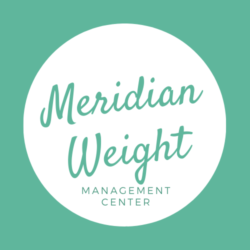
The question I am asked more than any other is “What is the best diet to eat”? Being asked this question is understandable, first, because I am a doctor, and second, because there are a million diet plans out there! Because of my job, people seem to expect me to have a quick answer for them. They almost seem disappointed when I start asking them questions in response. But the reality is that my chosen field of obesity is not simple. The reality is it can be quite complex and challenging. And, it is never boring! The patients we treat in obesity medicine are almost always dealing other medical problems, ranging from joint pain to diabetes, heart disease, depression, genetic syndromes, endocrine issues, or any of a hundred diseases.
Is this diet sustainable?
The complexity of obesity is why I have to ask a few questions of those who ask me for the “best diet”. First, the “best diet” has to be one that can be sustained over the long-term. For example, if a person detests the texture of meat, I would think twice about asking them to do a very low carbohydrate diet plan. In fact, a person that detests the texture of meat would probably be better suited for a vegetarian, vegan, or whole food plant based diet. Whenever possible take into consideration your own personal preferences and try to work them into your “best diet”.
What is the purpose of this diet?
Secondly, to choose a “best diet”, I need to know what the goal of the diet is. Is this diet for weight loss? Is it to lower your chances of developing cancer? Or do you want to prevent a heart attack or stroke? With this in mind, I may recommend a diet for short term weight loss, like meal replacements, and then slowly switch to a longer term heart healthy diet. Or, in someone with a strong family history of Alzheimer’s dementia and strokes, I might recommend the MIND diet. It is important to realize that there are an unlimited number of diet plans out there, all touting their own successes. Above all, know what your goals are. Know what you want out of your “best diet”.
What health problems is this diet treating?
The third question I ask people when they want to know the “best diet” is what type health problems the recipients of this diet have. If this “best diet” is for a healthy person who just wants to prevent disease and stay healthy, that is one thing. In contrast, a different diet could be the “best diet” if the person has diabetes, high cholesterol, and gout.
How active is the dieter?
Lastly, I like to know how active the person who is going to be eating my “best diet” is. If I have a couch potato patient who wants their “best diet” to be Paleo, we need to have a serious discussion about how many calories they will have to begin burning with exercise to balance their diet. No matter what “best diet” we choose together, activity levels come into play for you to be healthy. For tips about increasing your activity level check out: https://www.self.com/story/fitness-tips-trainers-give-beginner-clients/.
After I have the answers to the above four questions, only then do I feel like I can make a recommendation for the “best diet” for someone. Be aware, diets may require tweaking over time. They are kind of living, breathing works in progress that grow as we do.
Some Basic Truths
Somethings are true, no matter what diet you are doing. For example: We need to work harder at lowering our salt intake. We need to eat more “real food”. By that, I mean the raw vegetables, berries, nuts, seeds, etc., that are lacking in many of our diets. We need to stop eating ultra-processed food products. Our drinks ideally should be noncaloric beverages (water, unsweetened tea, unsweetened coffee). Learn more about what Meridian Weight offers in individualized meal planning at: http://http//www.meridianweight.net.

